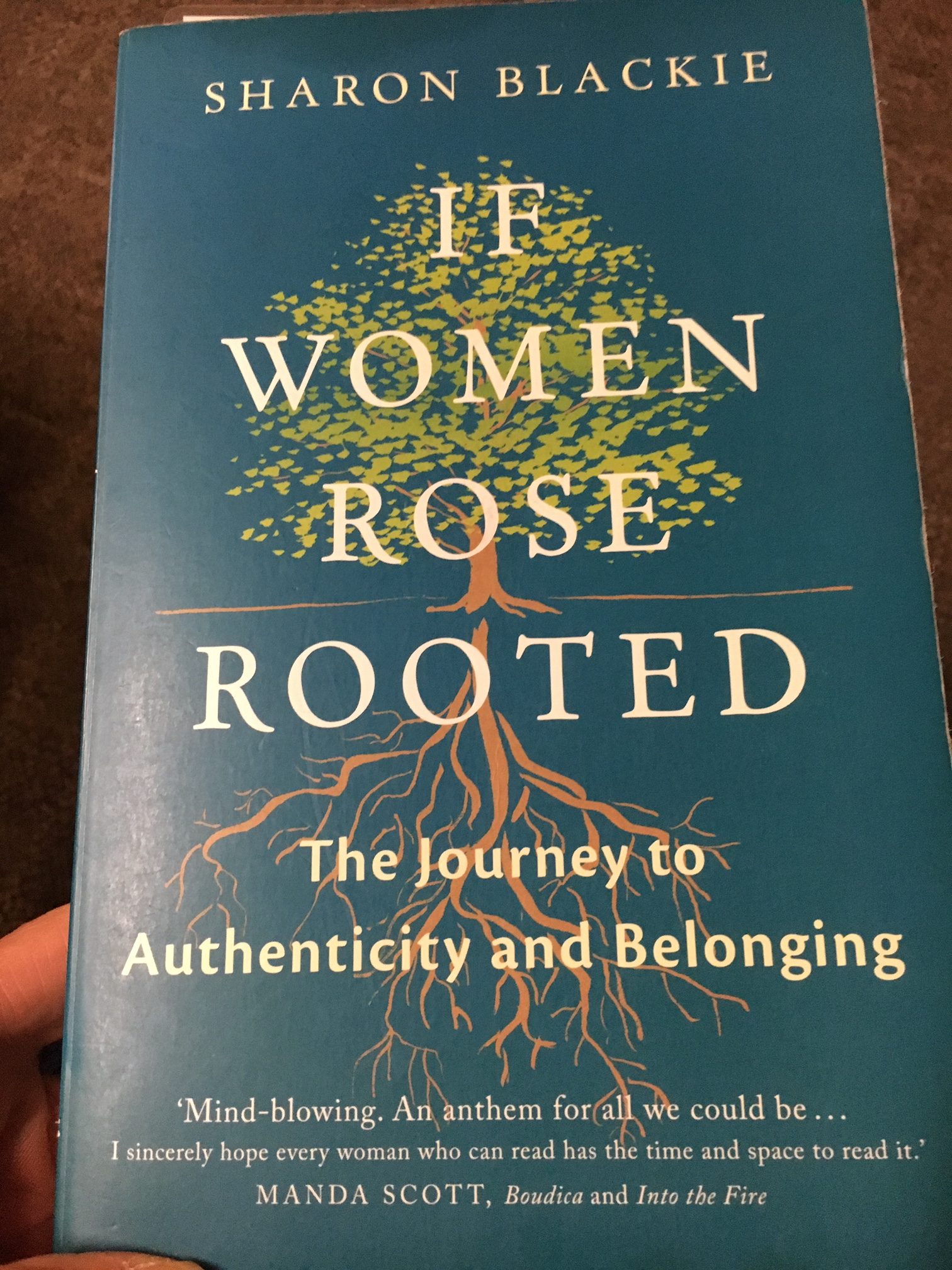If Women Rose Rooted
Karl and I attended a delightful talk this evening at the Philadelphia Jung Institute. We were there to listen to Sharon Blackie, author of the deliciously inspiring book, If Women Rose Rooted.
Time is growing short this evening, so I don’t have a lot of it to spend on this post.
But let me suggest you give this book a read if you are at all interested in the intricate connection of women with the land on which they stand and live, and the reclaiming of their power as a result of that reconnection.
Ms. Blackie was, as many of us are or were or have been, swept up in the somewhat sense-deadening chaos of early 21stcentury life. In short, she was disconnected from her home place, from the source of her power, from the stories and myths that could teach her where her power sources and is held.
She described for us how she’d grown up on what she called ‘faerie stories.’ She was captivated by these tales and then devastated when she went to school and was told they were not real. They were ‘only’ stories. Indeed – they weren’t even proper myths, because it was quite obvious that the only myths worth even being called myths were of Greek or Roman origin.
Our Myths Need to Spring From Our Land
But these myths, those not at all related to her home place, held no true resonance for her. They didn’t feel applicable to her life or her sense of place or experience whatsoever because they were not grounded in the land on which she was born and raised.
I’d like to interject here that I found this part of Blackie’s discussion, in particular, fascinating, in that it echoed precisely something I’d just read last night in a book I’m currently reading. (I read Blackie’s book about a year ago and am still digesting how I can implement and widely share the inspiration I took from it at that time.)
The book I’m currently digesting is Come of Age– The Case for Elderhood in a Time of Trouble by Stephen Jenkinson.
I was surprised this evening when I heard Sharon Blackie describe the profound effect it had on her to have the Celtic myths of her people, of her land, dismissed as somehow inferior (‘just faerie stories’) and the tales of heroic adventures that had olive groves as settings and protagonists with whom she could not relate be deemed the culturally sanctioned myths that serve us all.
Disempowering Tactics
Jenkinson had just posited the same disempowering tactic had been employed, first by the Romans and then emulated later by the Christians, when they sought to effectively usurp the nature-based spirituality of the people of the conquered lands.
The bottom line of that part of the discussion, obviously, was that we must reclaim the myths of the lands of our ancestors, yet take it far deeper than that: we must connect, then, to the land itself and, as I put it when I do my work, the ‘spirits of this land.’
There is more great stuff to discuss as a result of what I’m learning and gleaning from both of these books. Suffice it to say for the moment: we have work to do and connections to make, with ourselves and with our lands.
(T-897)
